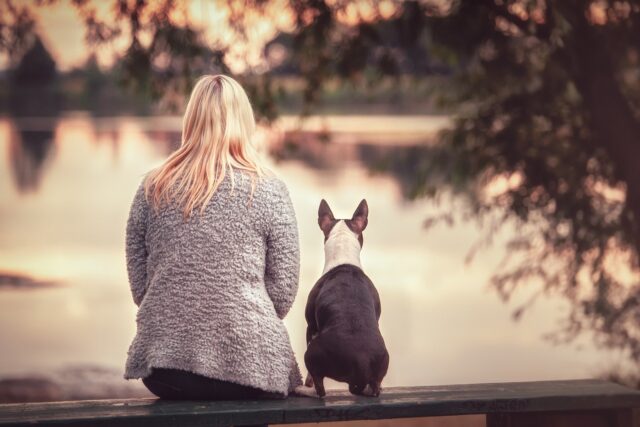 Shutterstock
Shutterstock
Dog owners understand the deep love their pups feel for them, even if dogs express it in ways that differ from human affection. While we might instinctively reach for a hug to show love, studies have found that most dogs don’t actually enjoy being hugged. For many pups, the act of being held tightly can feel confining or stressful, even if it’s well-intentioned.
That doesn’t mean they’re not affectionate creatures. In fact, dogs thrive on love, approval, and attention from their humans. They just have their own preferred ways of receiving it. Instead of hugs, consider offering a belly rub, a favorite treat, or a playful round of fetch. Even a calm cuddle session where they choose how close to be can go a long way in making them feel secure and valued.
Understanding your dog’s unique language of love helps deepen your bond and ensures your affection is received in a way that feels natural and comforting to them. By respecting their preferences, you’re not only making them happier but also strengthening the trust and connection that makes your relationship truly special.
Gaze Deeply Into Their Eyes
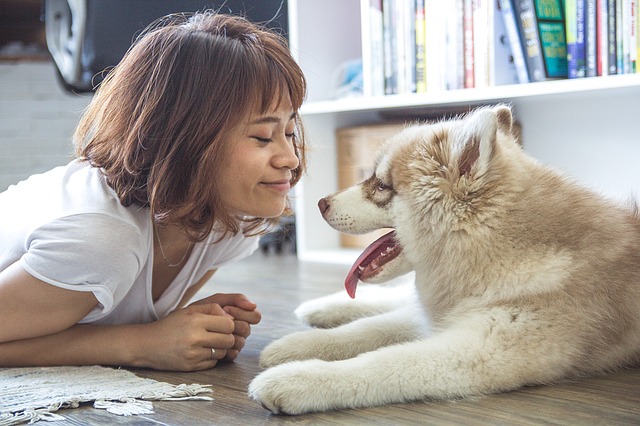 Shutterstock
Shutterstock
Dr. Brian Hare, Professor of Cognitive Neuroscience at Duke University and author of the bestselling book The Genius of Dogs, shared a fascinating insight during a recent interview with Anderson Cooper. He explained that when your dog gazes into your eyes, it’s not just a look—it’s a form of affection. As he put it, your dog is “hugging you with his eyes.”
Of course, not all dogs appreciate direct eye contact, especially those who are unfamiliar or in protective mode. In some situations, a steady gaze can be perceived as a threat. But with your own pet, in a calm and loving environment, gentle eye contact can be a powerful bonding tool.
Hare recommends spending quiet time with your dog, speaking softly and offering gentle touches while making eye contact. These peaceful interactions, he says, trigger the release of oxytocin in your dog’s brain, the same hormone responsible for bonding between a mother and her child.
These shared moments aren’t just comforting, they actually strengthen your relationship on a biological level. So the next time your dog locks eyes with you during a quiet cuddle, know that it’s more than just a glance. It’s a heartfelt connection.
Raise Your Eyebrows
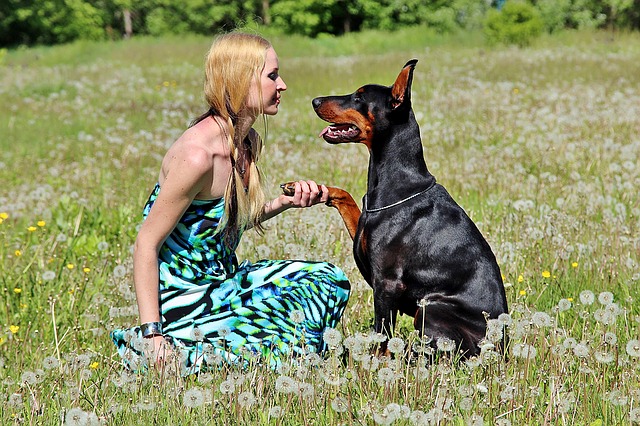 Shutterstock
Shutterstock
A Japanese study published in the September 2013 volume of Behavioral Processes found that dogs raise their eyebrows – especially the left one – when greeted by their owners. Using a high-speed camera, they scrutinized the dogs’ facial movements when seeing their owners vs. strangers.
When the strangers came along to greet them, the test dogs displayed far less facial activity, most of which was right-sided. The significance is that the right brain controls the left side of the face and is tied to emotion, while the left brain controls the right side of the face and is tied to analytical behaviors.
The more facial activity you display when greeting your dog, the more they know they are loved. If you can raise one eyebrow (sadly, I cannot), then make it to the left one. Your pup will really feel special!
Lean On Them
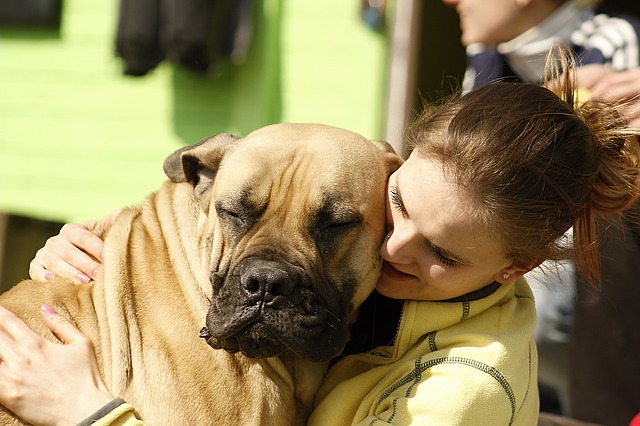 Shutterstock
Shutterstock
Not just figuratively, but press your weight against your dog physically. Not to the point where he feels cornered (or crushed!), but just a little to show you trust him. Our pups do this to display their affection for us, which is often overlooked.
Have you ever had your pooch press up against the backs of your legs while you’re busy in the kitchen? That’s a type of dog hug! Try giving him one right back.
Let Them Sleep With You
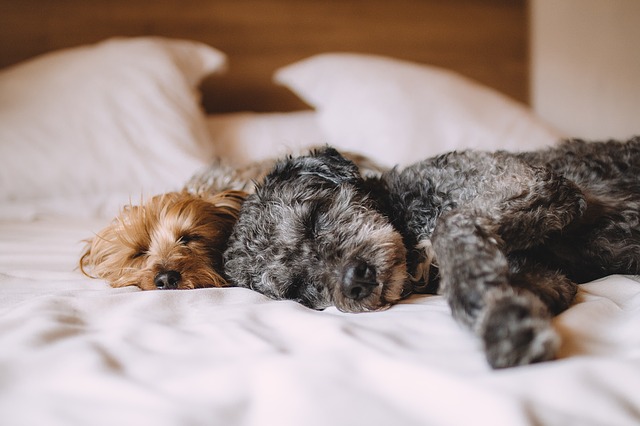 Shutterstock
Shutterstock
Emory University neuroscientist Gregory Berns is the author of How Dogs Love Us, and he has spent decades studying the canine brain using MRI. According to his research, sleeping with a human is the ultimate display of love and trust our dogs can give because that is when they are most vulnerable.
It also shows that they consider us a member of their pack. If you have a No Dogs in Bed policy, try snuggling up on the sofa or floor for a few minutes daily to show affection.
Rub Their Ears
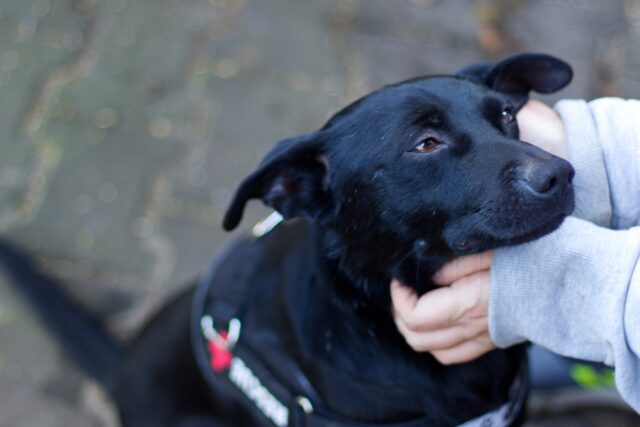 Shutterstock
Shutterstock
A pat on the head might feel natural to show praise, but rubbing your dog’s ears may express more love. When you rub your dog’s ears, their bodies produce endorphins. Endorphins are hormones that cause pleasure for your pup. A gentle ear massage in a circular motion is enough for your dog to know how you feel.
Spend Quality Time Together
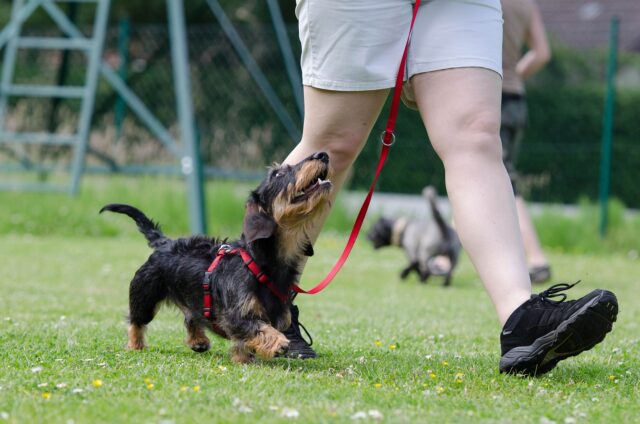 Shutterstock
Shutterstock
Engaging in fun activities with your dog is a great way to help your bond grow. Going for walks, playing fetch, or working on training are all ways to show your dog you care. These activities bring you and your dog closer together.
When your dog sees you having fun, they’ll feel happy too. In addition to feeling loved, your dog will get the exercise and mental stimulation they need.
Keep Using the “Baby Voice”
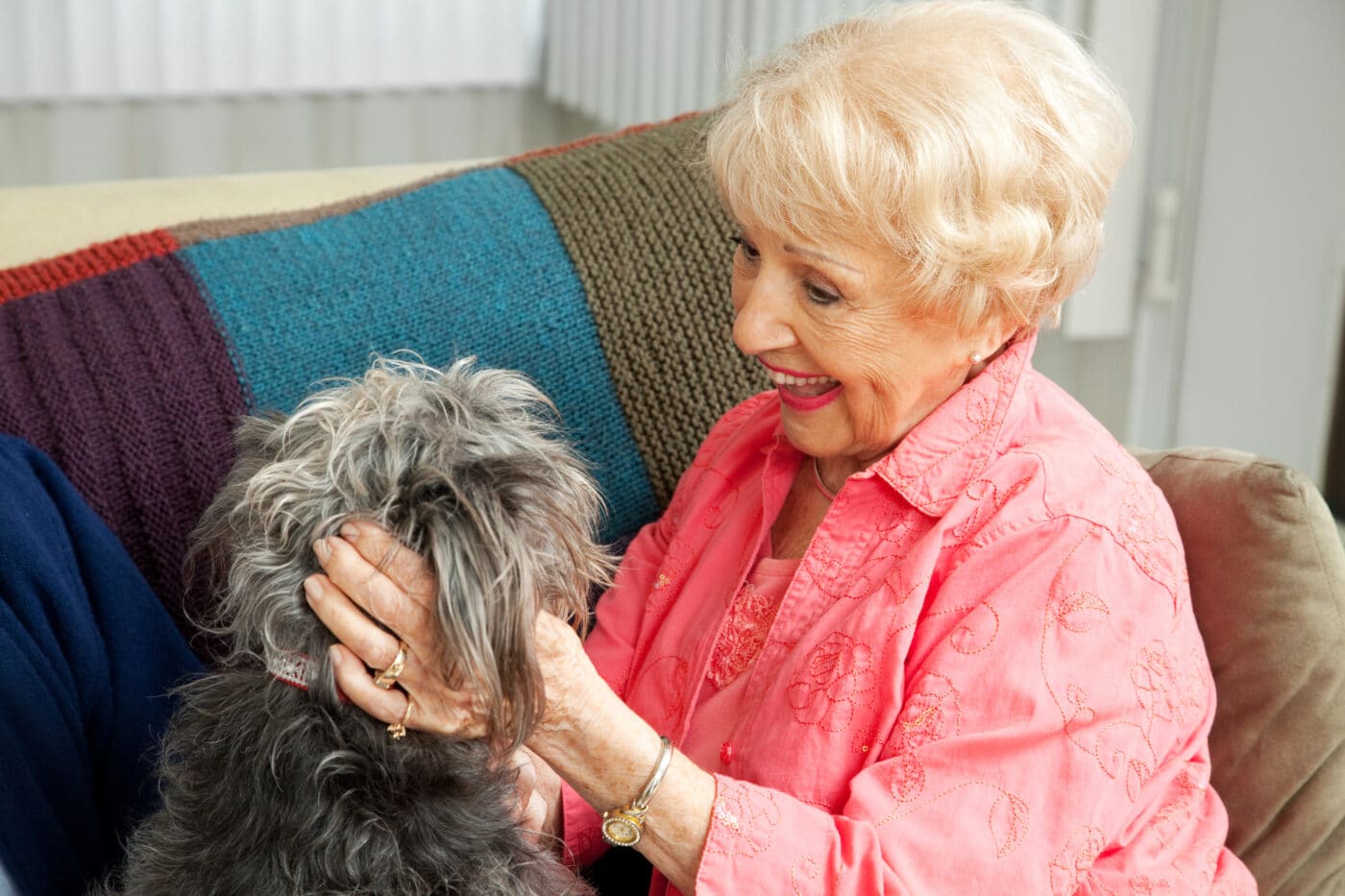 Shutterstock
Shutterstock
We all do it! As dog parents, it’s hard to resist having conversations in a high-pitched voice with our dogs. It might be embarrassing to admit, but dogs enjoy it. They respond well to the exaggerated emotions in your voice, and it helps them know you’re addressing them.
So, there’s no need to feel crazy if you talk to your dog. Odds are, their love for you grows even stronger when you do. Reading to dogs is another special way to bond with them.
Give Them a Loving Touch
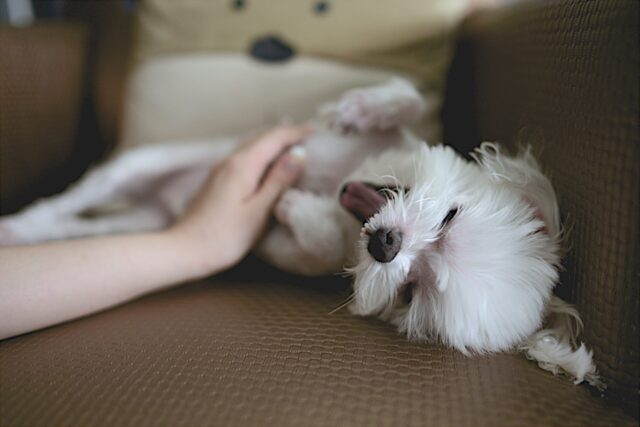 Shutterstock
Shutterstock
Not every act of love has to be grand. You can show your dog you love them just by petting them. Touching a dog releases oxytocin, a hormone that makes you feel good. So, if your dog enjoys it, there’s no reason to hold back on the pets and belly rubs.
Adding an extra touch to your dog’s routine, such as a massage, grooming session, or extended petting time, might make your dog feel more loved. Most dogs will happily welcome the extra attention.
Just Be Yourself
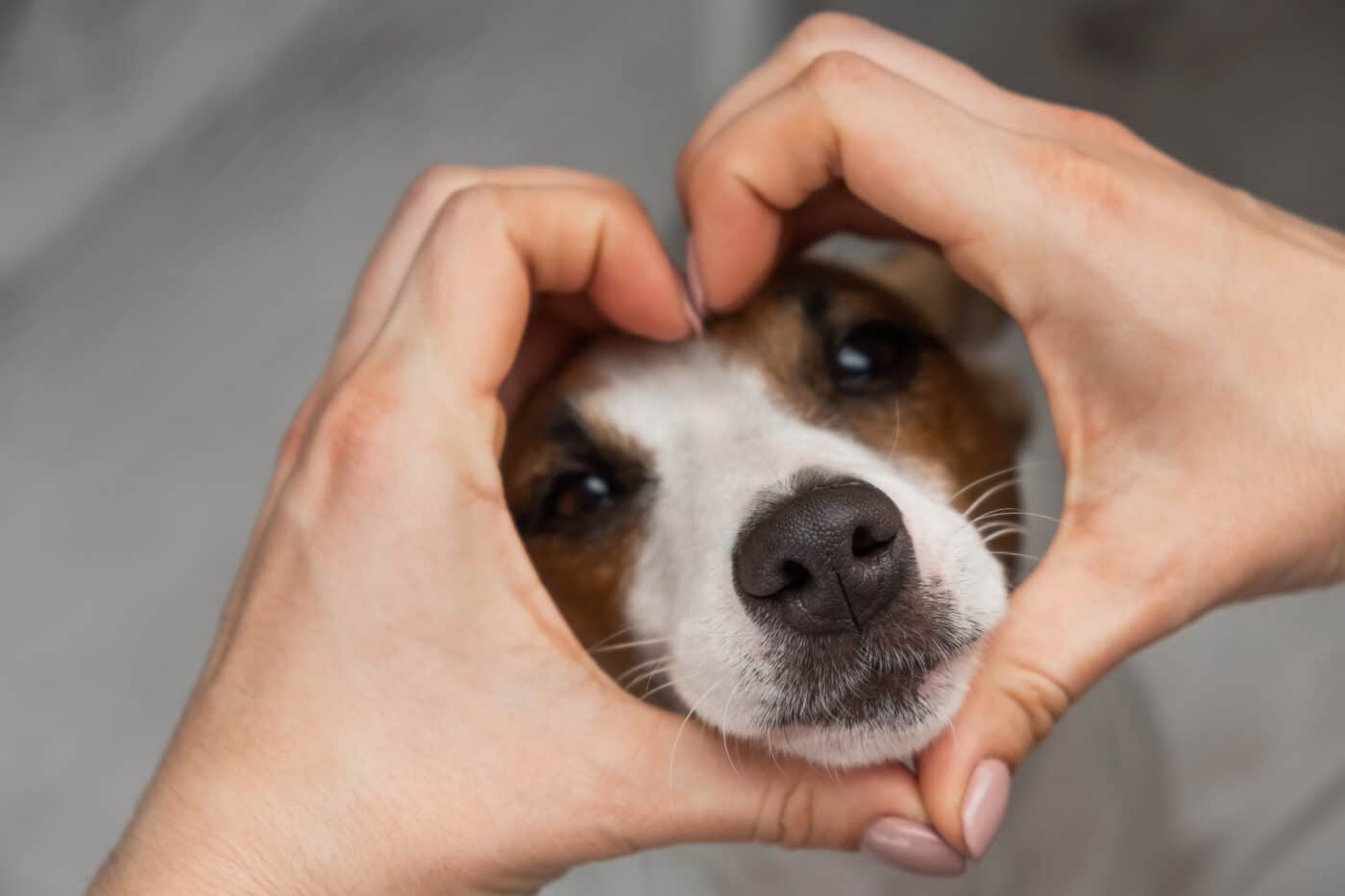 Shutterstock
Shutterstock
Throughout his extensive research Dr. Berns has found that although it’s sometimes hard for us to tell what our dogs are thinking, they definitely do not have the same problem reading our emotions! If your love is true for your pups, they know it by reading your voice, body language, and actions. So just keep doing what you’re doing, and your dogs will reward you by showing affection in their own special ways.
 Toledo, United States.
Toledo, United States.